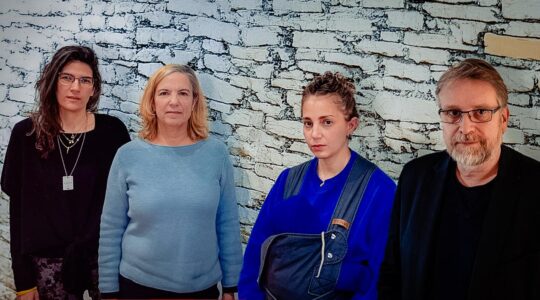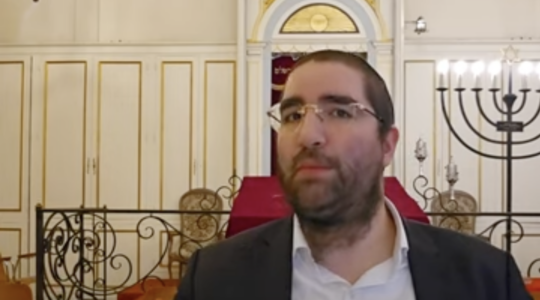BUENOS AIRES, Argentina (JTA) — Rabbi Marshall Meyer spoke out for liberty while working in Buenos Aires during the military dictatorship government in Argentina from 1976 to 1983.
Now the activist spiritual leader will be honored with a mural to be painted in its capital city’s public square.
The Buenos Aires city government and the Latin American Rabbinical Seminary will hold a contest for the design of the mural.
Meyer was a New York native who worked in Buenos Aires from 1958 to 1984 to revitalize the Conservative movement. He created the Latin American Rabbinical Seminary, which ordains rabbis in Argentina and throughout Latin America.
During the military dictatorship, Meyer spoke out for freedom and visited Jewish prisoners. When democracy was restored, he was named by President Raul Alfonsin to the National Commission on the Disappearance of Persons, which authored a report of human rights violations and became a book. Meyer reportedly is the man who suggested the title for the report and the book, “Nunca mas” (Never more), which became a slogan for human rights activists.
Meyer, who was mentored by the activist rabbi Abraham Joshua Heschel, returned to the United States in 1984 and became the spiritual leader at Congregation B’nai Jeshurun in New York. He also served for a year as vice president of the University of Judaism in Los Angeles. He died in December 1993.
A video released by Bnai Jeshurun to remember the 10th anniversary of Meyer’s yahrzeit includes a 1983 interview with “60 Minutes” in which he described the cruelty of the dictatorship government (at minute 5:50).
The city website in a description of the contest emphasizes Meyer’s humanistic view and his institutional achievements.
The contest, for citizens and permanent residents of Argentina, is sponsored by the city’s Secretary of Human Rights and the seminary.
JTA has documented Jewish history in real-time for over a century. Keep our journalism strong by joining us in supporting independent, award-winning reporting.





